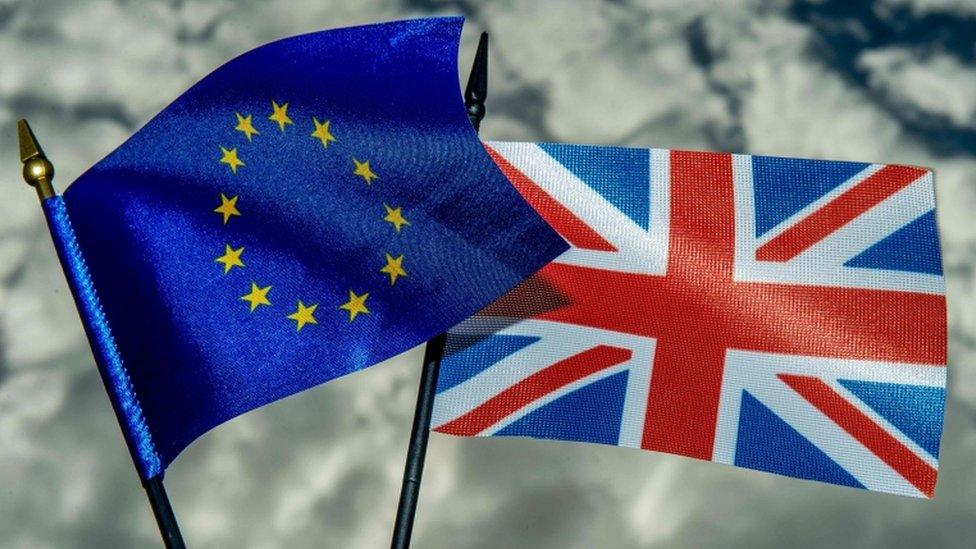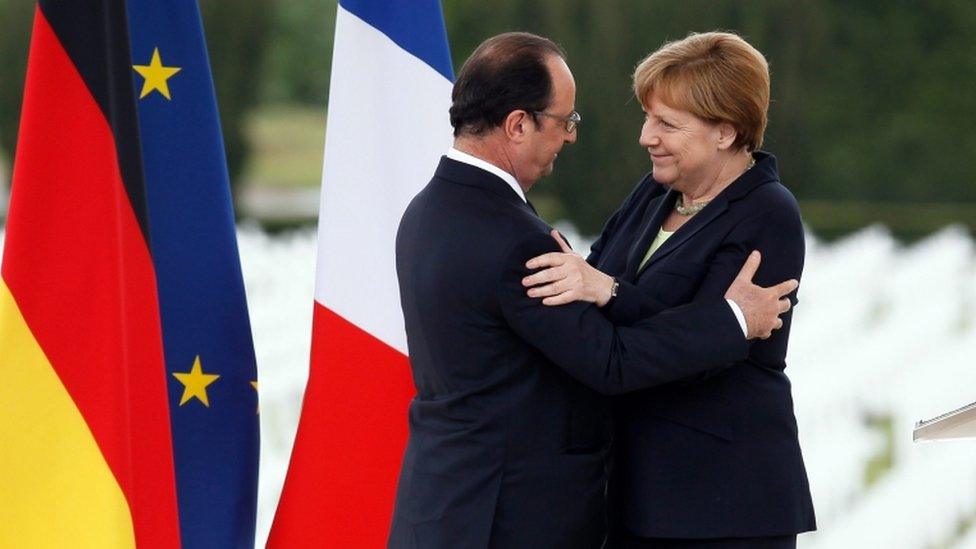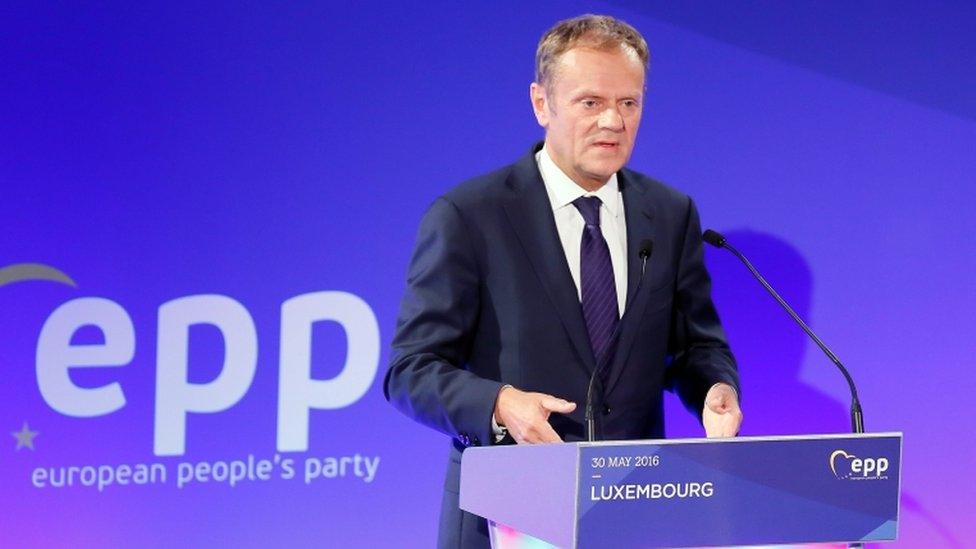EU referendum: Where are the big themes?
- Published

On the streets it is easy to detect weariness with the referendum campaign. Many voters seem uncertain, bewildered by personal attacks and insults.
They are air-bombed with statistics many of which relate to a distant future. It is claimed household income outside the EU will fall by 2030 or that fewer migrants will lead to lower GDP in 2065.
The political horizon is often unknowable. In October 2009, no-one was paying any attention to the general election in Greece. Just seven months later, the country was judged to be threatening the future of not just the eurozone, but of the entire European project.
The prime minister has described the vote as the most important voting decision in our lifetime but the arguments, more often than not, are over the impact on house prices or VAT rates or the numbers of migrants who might arrive.
What is largely absent is a sense of history, of the bigger themes and choices that will shape both the UK and Europe.

Francois Hollande and Angela Merkel: Supporters of the European project
A few days ago, Chancellor Merkel and President Hollande remembered the battle of Verdun that 100 years ago claimed 300,000 lives.
The French president said: "We should protect our common home, Europe… without which we would be exposed to the storms of history."
Europe's leaders see the foundation stones of the European project being shaken by "disenchantment" and "rancour".
The Europe they defend is perhaps best captured by the citation when the EU won the Nobel Peace Prize in 2012, external. It read: "For over six decades (the EU) contributed to the advancement of peace and reconciliation, democracy and human rights in Europe."
But the fact is the memories of conflict have faded. For those who jump on budget airlines for a stag or hen weekend, the idea of war in Europe is unimaginable.
And history has taught different lessons. For Germans, the EU is, at its core, a peace project. Germany found its post-war identity in being European.
In Britain, many people thought they were joining a common market; it was all about financial and economic advantage yet it was clear that a single market would inevitably involve transfers of sovereignty.
Even though the commitment towards European unity was always different, the mood in much of Europe, as the French president acknowledged, is "disenchanted", external.
Europe is living through a period when many of its illusions have been stripped away.
The financial crash exposed the flaws in the single currency. The migrant crisis revealed the weakness of Europe's border controls and its passport-free zone. The terror attacks sparked doubts about the much-cherished freedom of movement.
Huge decisions
And yet when the referendum dust settles, whatever the outcome for the UK, huge decisions await which will change the European Union:
Is the logic of a single currency to create a common treasury?
Will monetary union only work with fiscal transfers from the rich countries to the poorer ones - whatever Germany may argue?
Does Europe need an energy union to join a banking union and capital markets union?
Does Europe need a fully fledged border force?
Will Europe embrace a digital union?
Will it sign massive trade deals with Canada and the US?
All of these plans, to a greater or lesser extent, will extend the reach of the hand of Brussels.
It is easy, in private, to find people in Brussels who will make the case for a European Federation or a United States of Europe but, timid in the face of the UK referendum, they have even postponed discussions on new standards for toasters and kettles.
But make no mistake, the rest of Europe is engaged in asking searching questions about its future.

Donald Tusk warned that European citizens may not share the enthusiasm for integration of some of their leaders
European Council President Donald Tusk was warning at the weekend, external that "obsessed with the idea of instant and total integration, we failed to notice that ordinary people, the citizens of Europe, do not share our Euro-enthusiasm".
Informing much of the debate is globalisation. What is the best way to manage its impact on jobs, on the movement of people and capital? Many in the European political establishment believe that a union of member states is better placed to deal with climate change, the environment, migration and energy supplies than nation states on their own.
Some argue that destiny can be reclaimed, that control can be taken back and national sovereignty restored.
Angela Merkel, speaking at the weekend,, external said: "If we reason only in national terms, we will not be able to progress."
Europe's leaders are painfully aware of what is at stake; that they are facing profound questions about the future of the European project.
For the UK, as well as Europe, choices made will determine identity and how the country sees its place in the world.
That is worthy of a big debate.